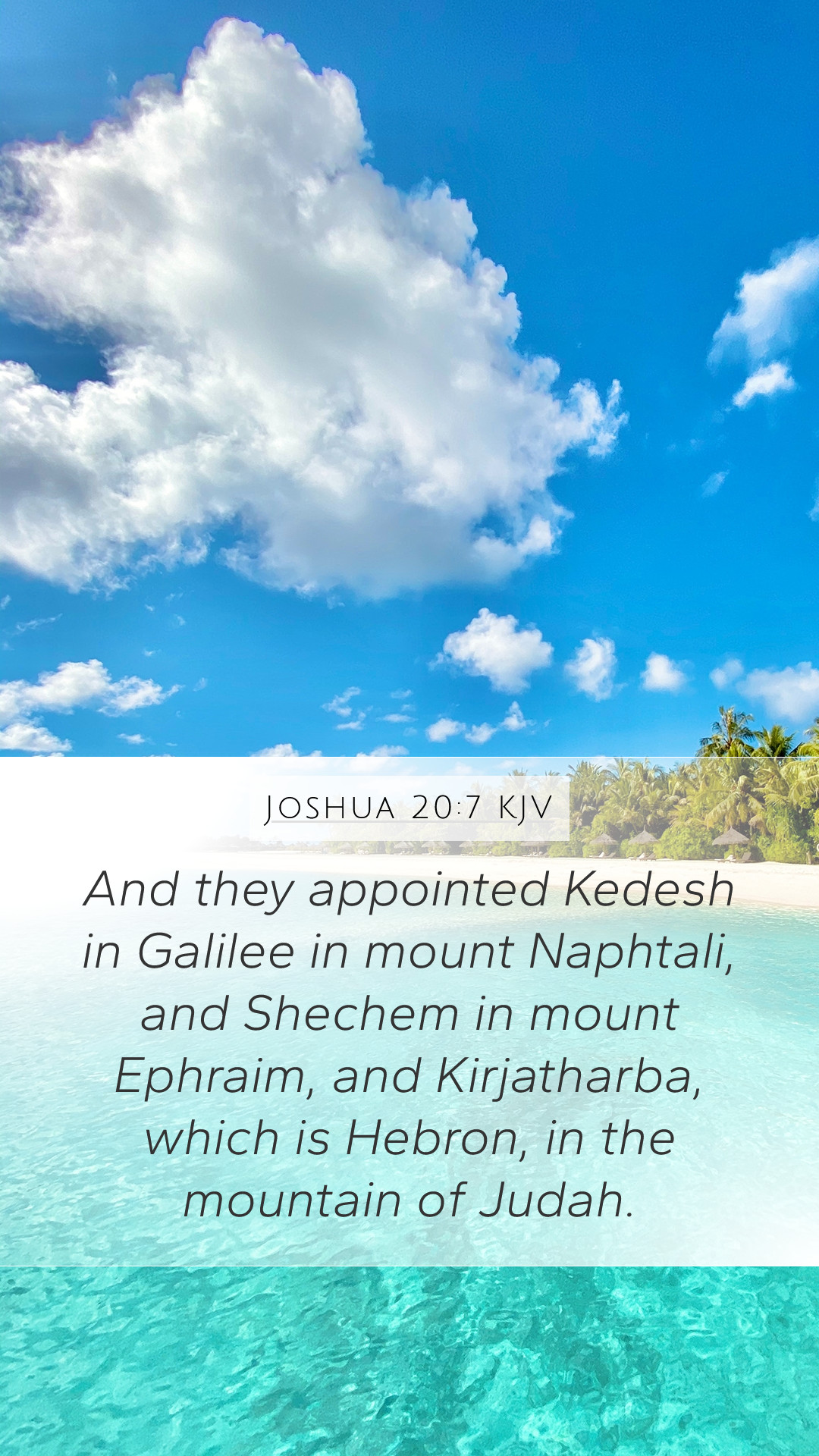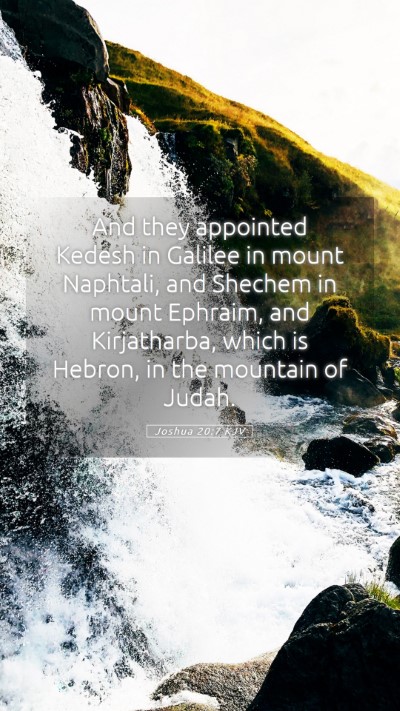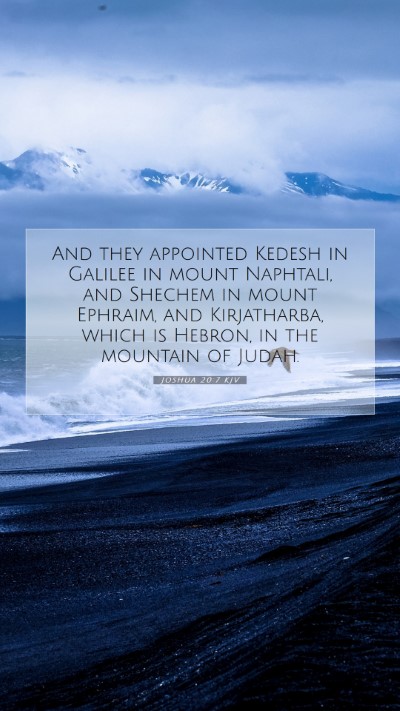Old Testament
Genesis Exodus Leviticus Numbers Deuteronomy Joshua Judges Ruth 1 Samuel 2 Samuel 1 Kings 2 Kings 1 Chronicles 2 Chronicles Ezra Nehemiah Esther Job Psalms Proverbs Ecclesiastes Song of Solomon Isaiah Jeremiah Lamentations Ezekiel Daniel Hosea Joel Amos Obadiah Jonah Micah Nahum Habakkuk Zephaniah Haggai Zechariah MalachiJoshua 20:7 Meaning
What is the meaning of Joshua 20:7?
And they appointed Kedesh in Galilee in mount Naphtali, and Shechem in mount Ephraim, and Kirjatharba, which is Hebron, in the mountain of Judah.
Joshua 20:7 Bible Verse Meaning
Bible Verse Commentary: Joshua 20:7
Verse Reference: Joshua 20:7 (KJV) - "And they appointed Kadesh in Galilee in mount Naphtali, and Shechem in mount Ephraim, and Kirjatharba, which is Hebron, in the mountain of Judah."
This verse is a part of the narrative describing the establishment of cities of refuge for individuals who unintentionally caused death. Understanding this verse goes beyond the simple naming of geographical locations; it involves recognizing the significance of these cities within the broader context of justice, mercy, and community responsibility as outlined in the biblical narrative.
Insights from Public Domain Commentaries
Matthew Henry's Commentary
Matthew Henry emphasizes the importance of the cities of refuge, showing God's provision for those in need of mercy. The locations appointed signify a commitment to justice - as these cities allowed for the life of the accused to be spared until their case could be fairly examined. This reveals God's character as a just and merciful being. Henry notes how Kadesh is associated with holiness, implying that refuge should also have a spiritual connotation.
Albert Barnes' Notes
Albert Barnes provides an extensive description of the geographical significance of each city. Kadesh, located in Galilee, was a city of importance during the Israelites' journey. Shechem acted as a central point for Israel’s history, while Hebron (Kirjatharba) is linked to patriarchal narratives. His analysis emphasizes the strategic locations of these cities, which were easily accessible to the surrounding tribes, ensuring that the cities of refuge served their intended purpose effectively.
Adam Clarke's Commentary
Adam Clarke dives deeper into the legislative aspects, explaining that these cities were not only refuges but also involved legal procedures. He highlights the necessity for such places for societal balance, allowing both the right of retribution and protection for the innocent. Clarke connects the historical context of the cities with the moral and ethical principles established in the Law, indicating how they reflect God’s commandments concerning justice.
Summary of the Verse and Its Context
Joshua 20:7 serves as a reminder of God's providence in establishing systems that promote fairness, while also being a key part of Israel's socio-ethical structure. These cities were vitally important for ensuring that mercy was extended within the context of justice. The cities of refuge represented a sanctuary where individuals could flee from vengeance, illustrating God’s desire for protection and restoration.
Application of the Verse
In modern applications, this verse encourages believers to be conduits of mercy and justice in their communities. The verse serves as a precedent for establishing support systems and places of safety for those who are vulnerable.
Cross References
- Exodus 21:12-14 - The laws concerning murder and refuge
- Numbers 35:6-15 - Further details on cities of refuge
- Deuteronomy 19:1-10 - Instructions for the establishment of cities of refuge
For Bible Study Groups
This verse can serve as a focal point for discussions in bible study groups regarding the intersection of justice and mercy within a Christian framework. Engaging with the historical context enhances the understanding of scripture and promotes rich dialogues on the application of biblical principles in contemporary issues.
Conclusion
Understanding Joshua 20:7 is essential for appreciating the heart of God's law. By exploring the verse through various bible study tools and resources, individuals can gain insights into the nature of God as a refuge for humanity while deepening their personal bible verse interpretations, enhancing their spiritual journeys.


